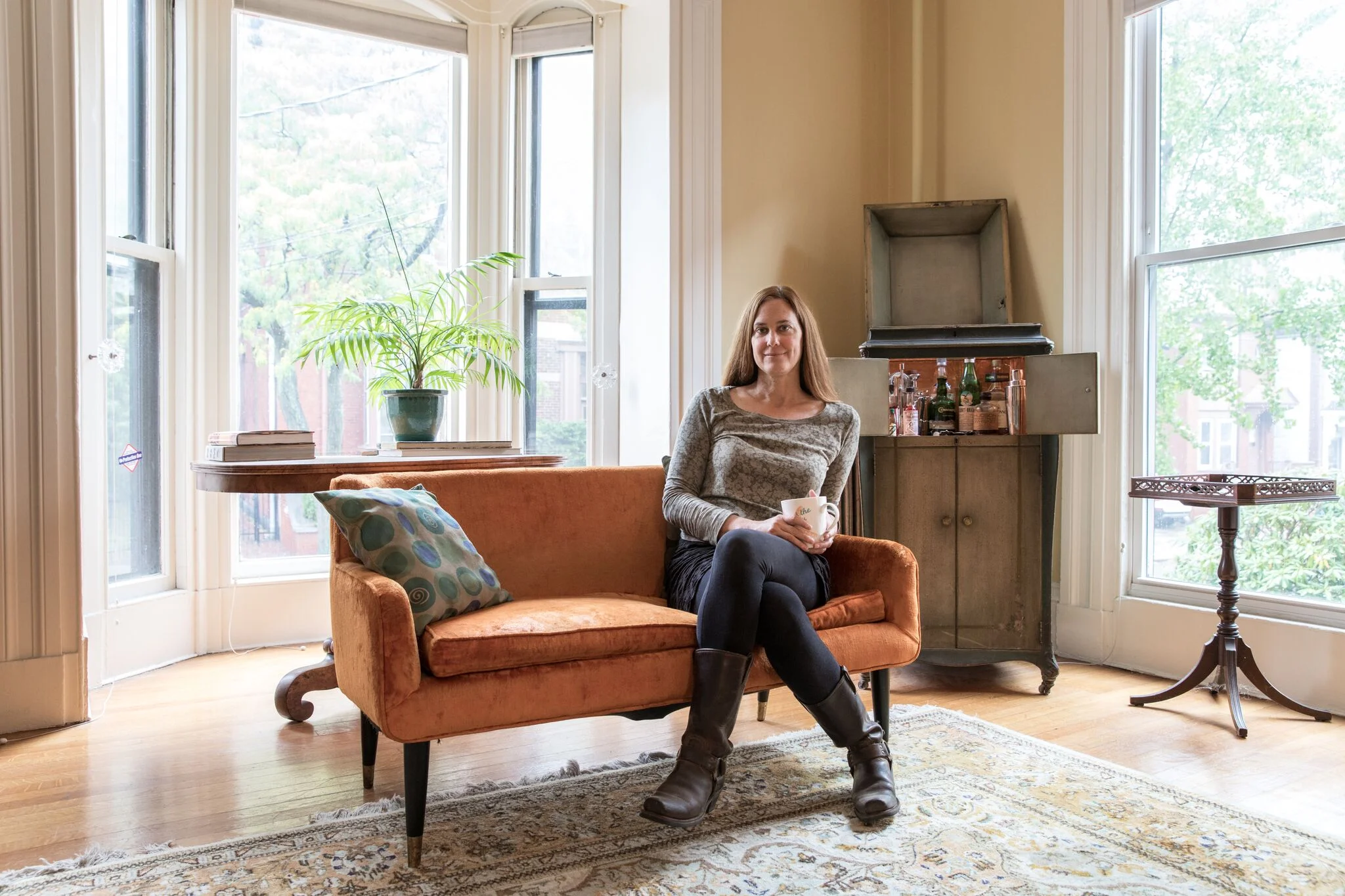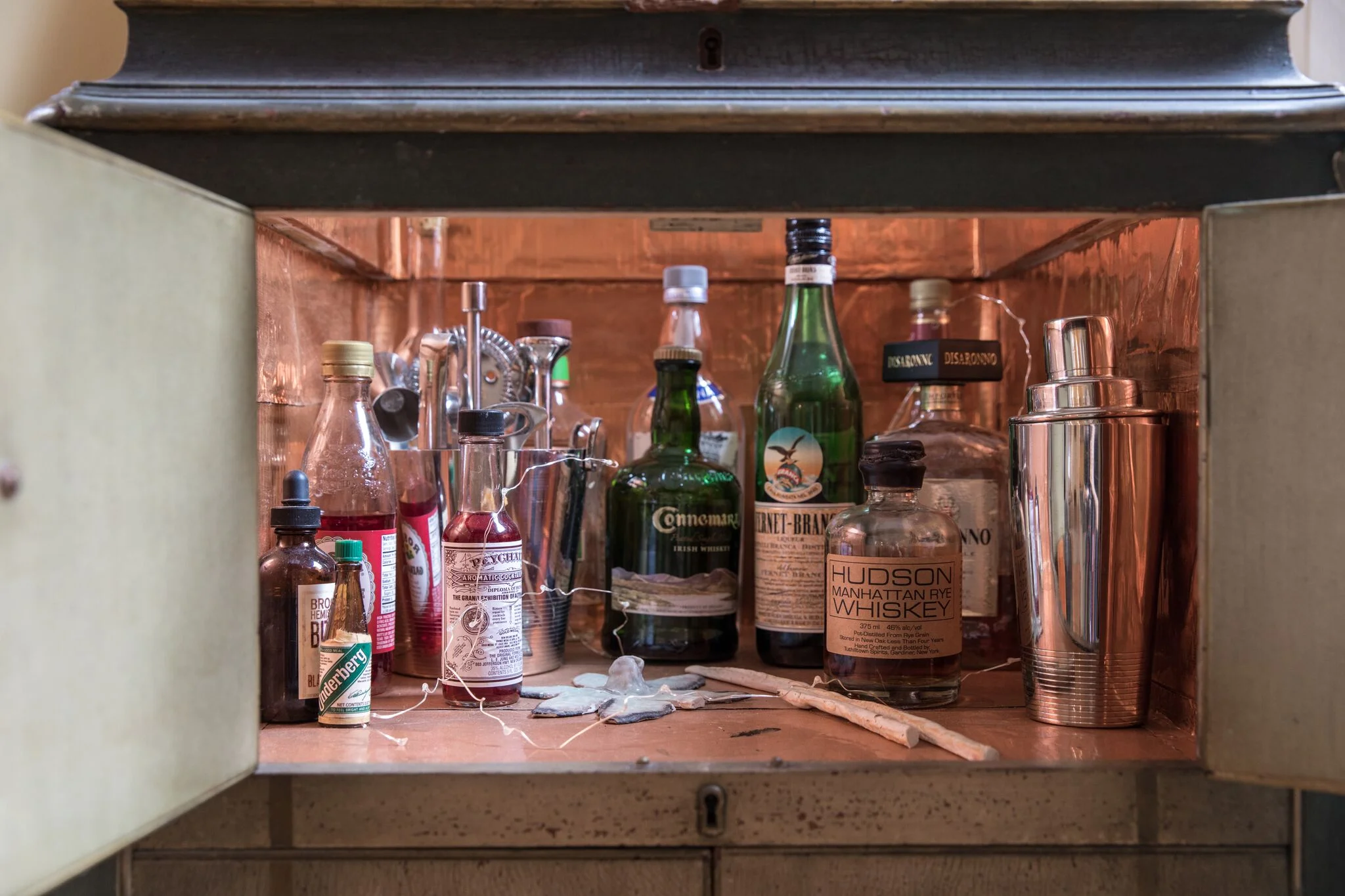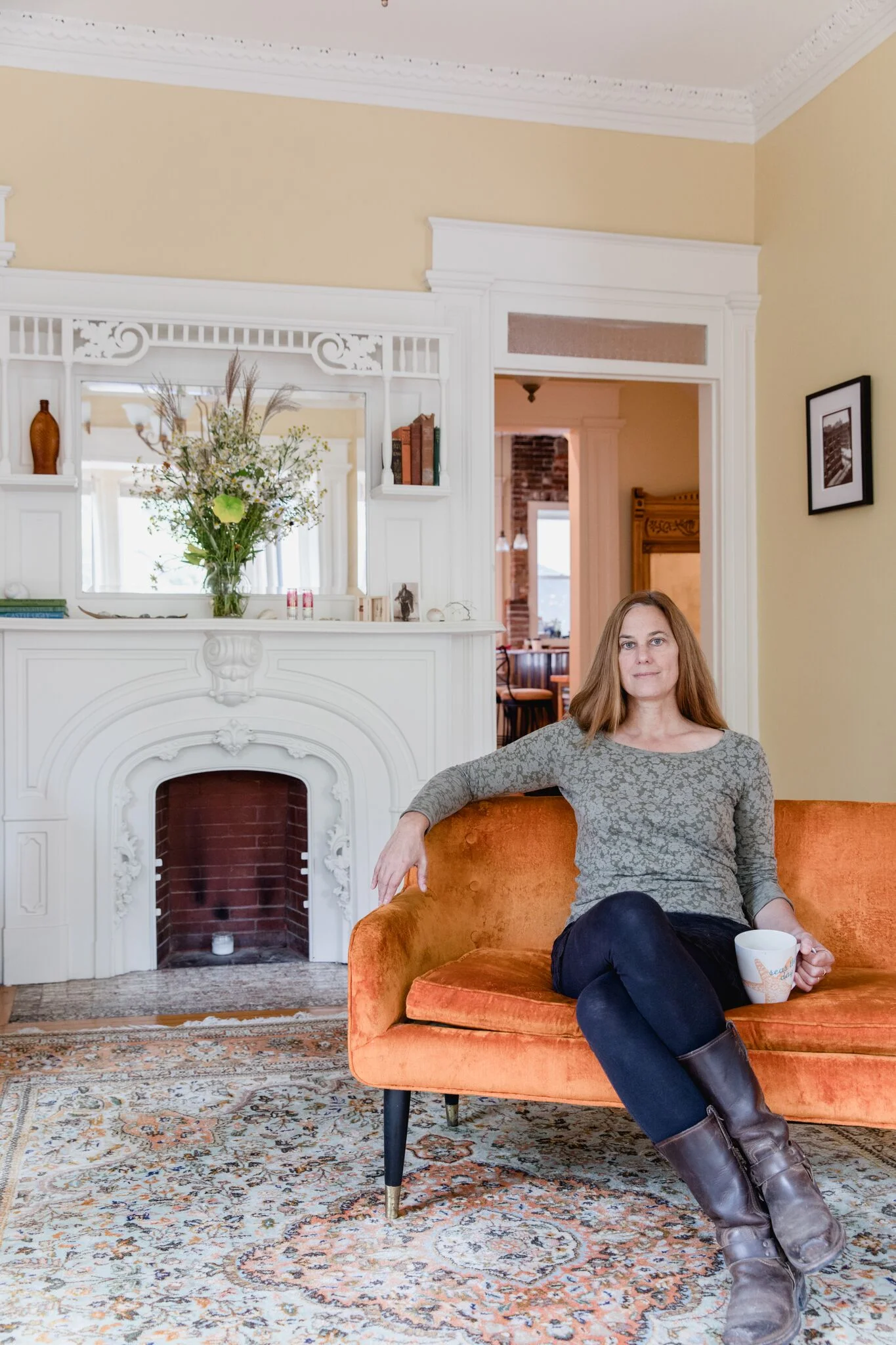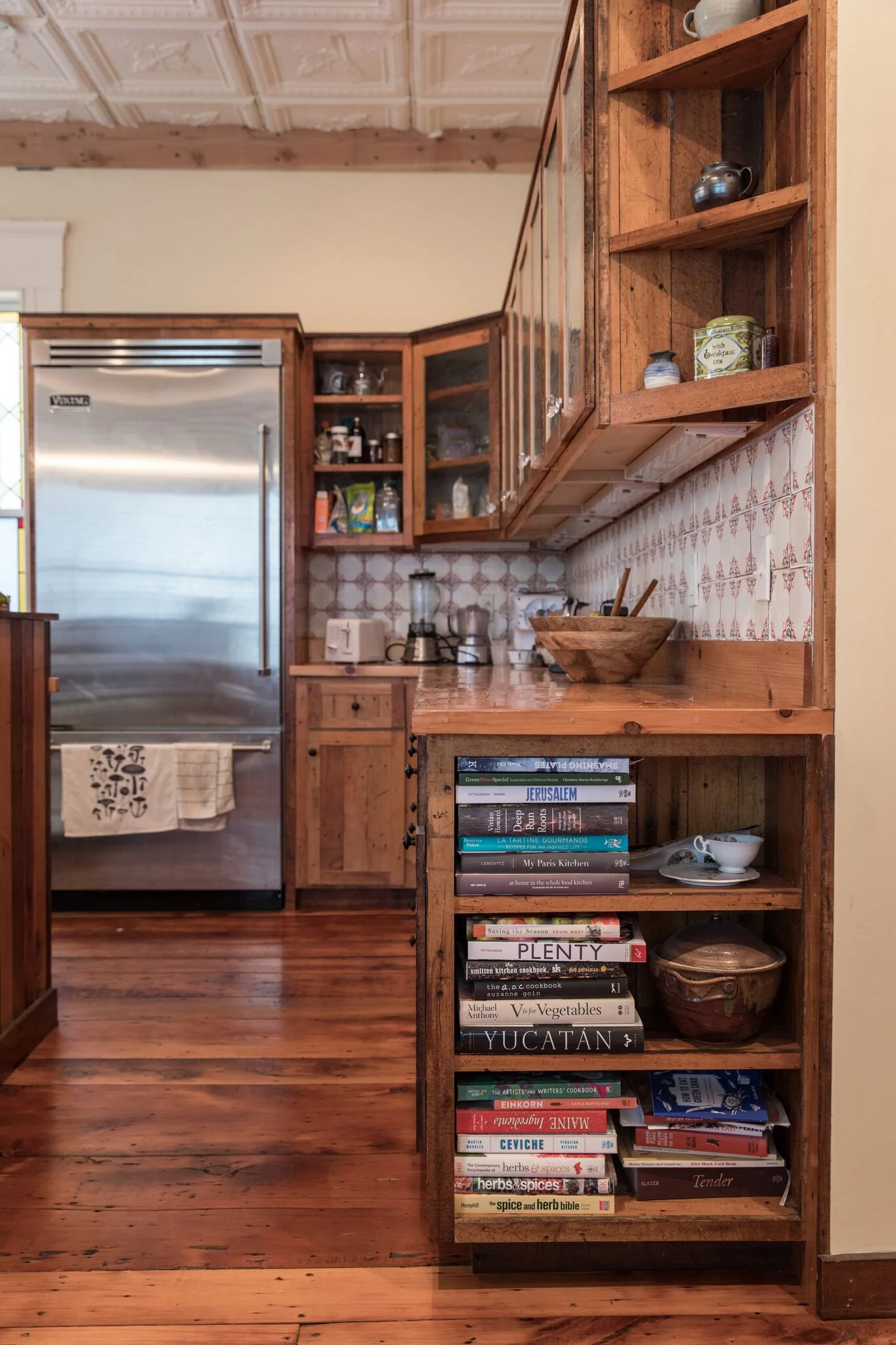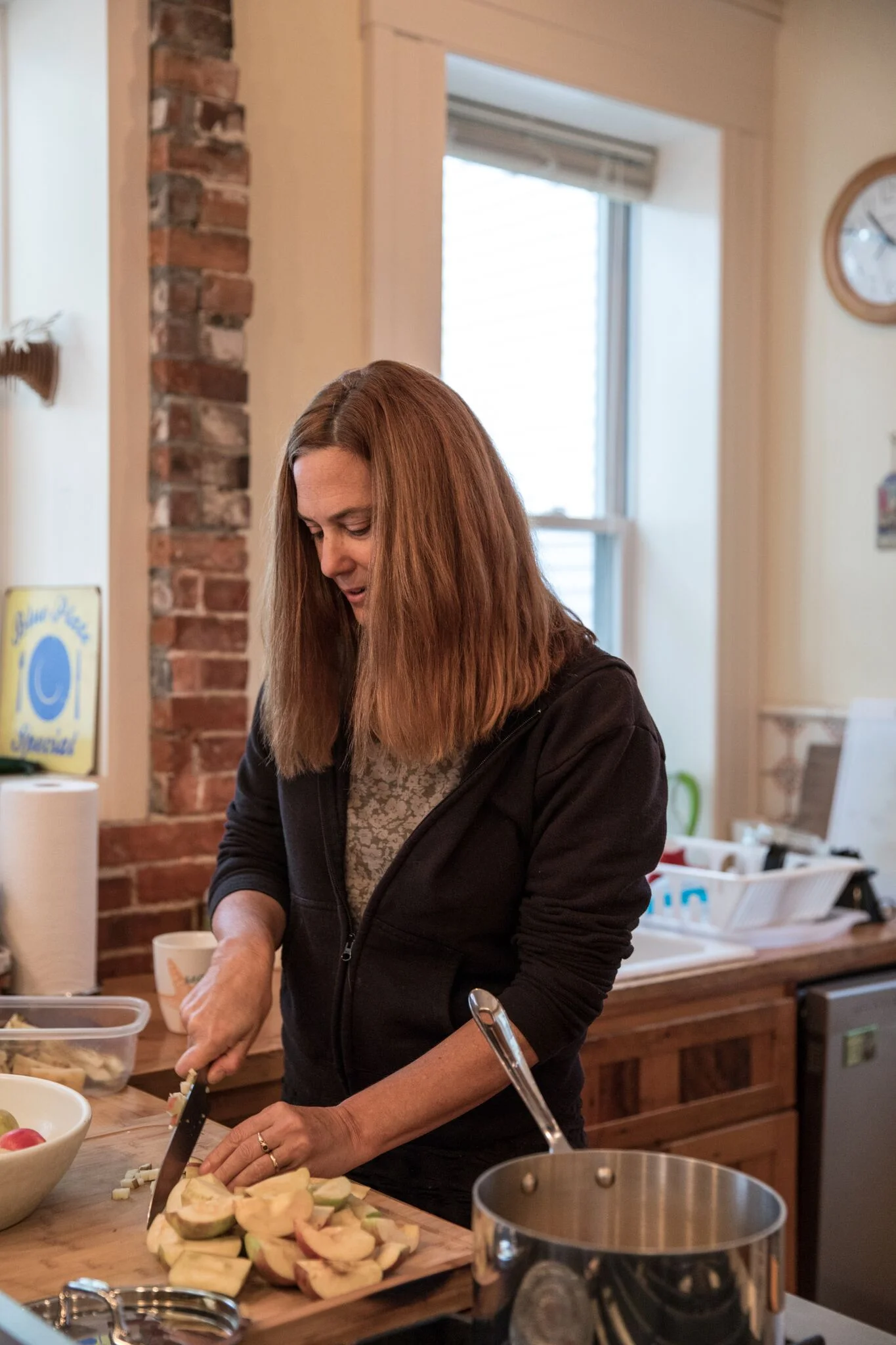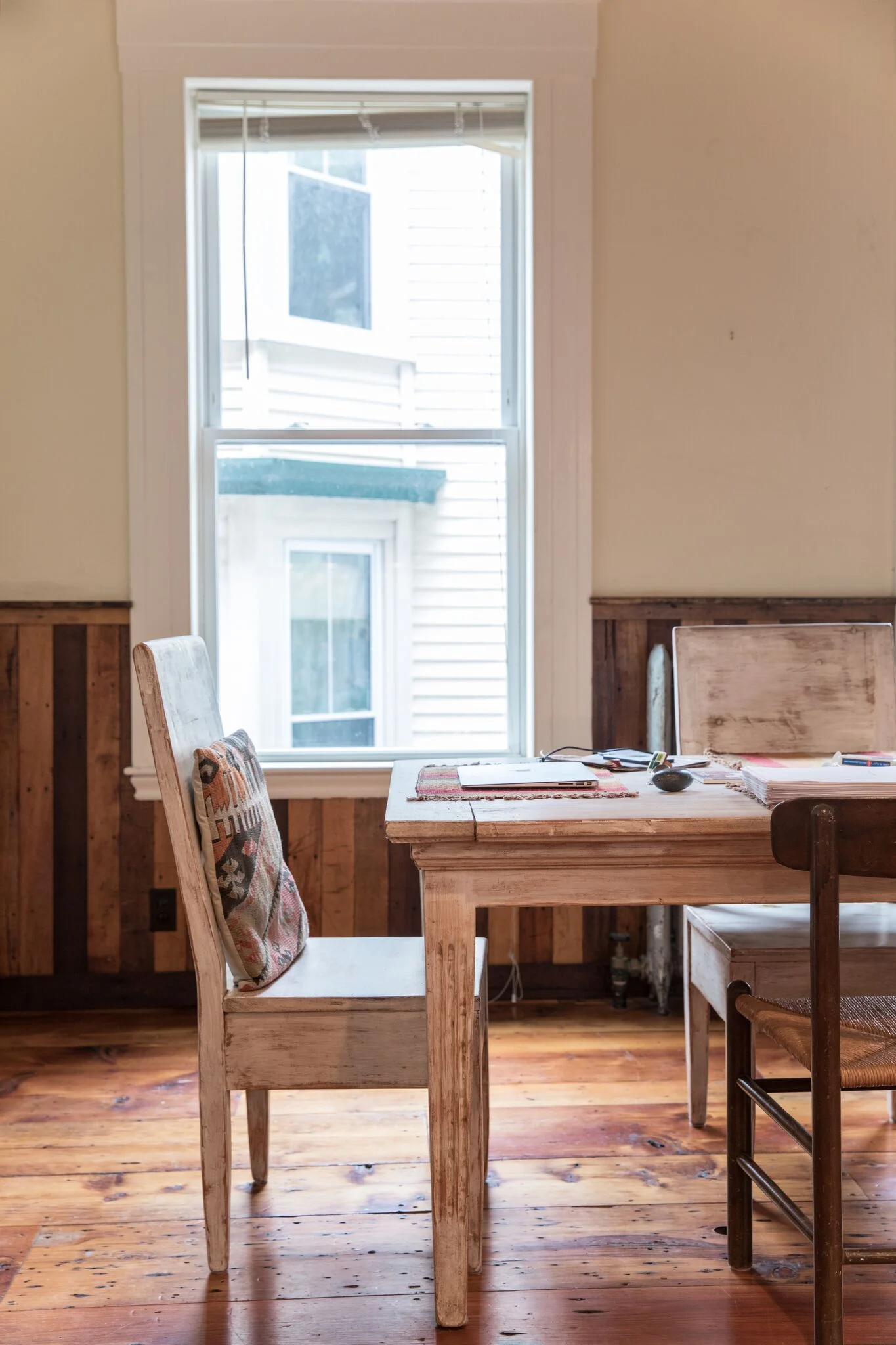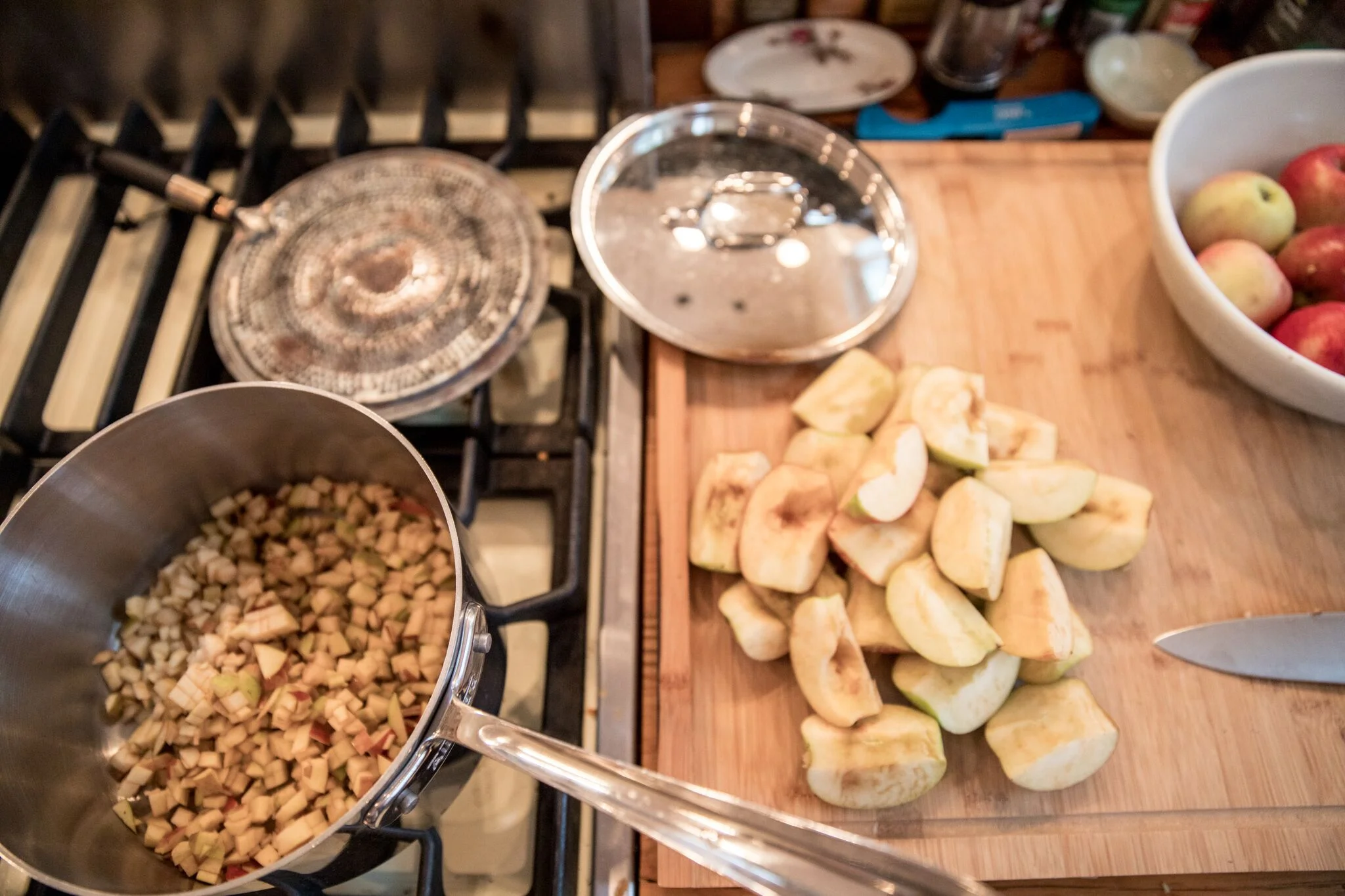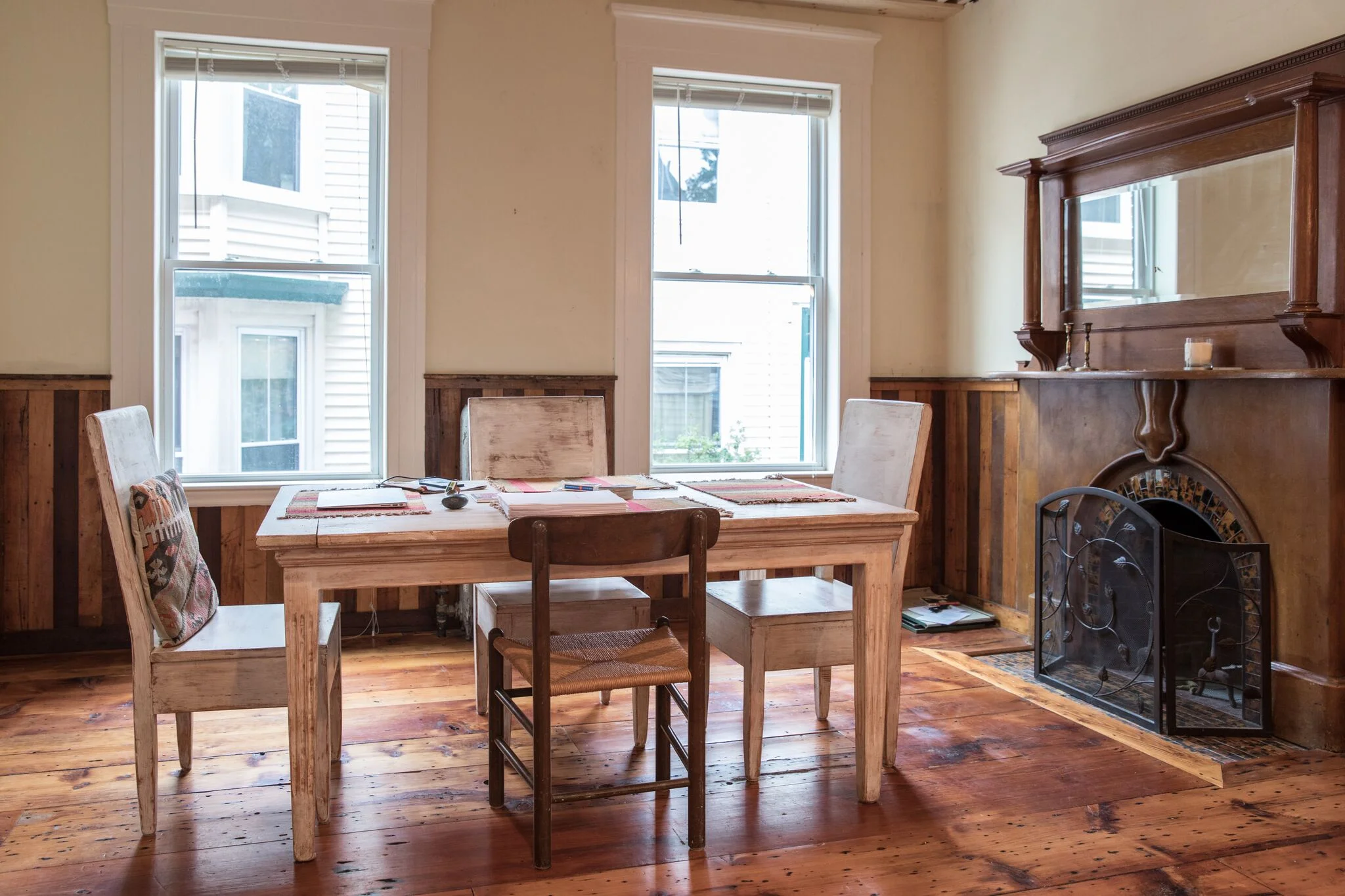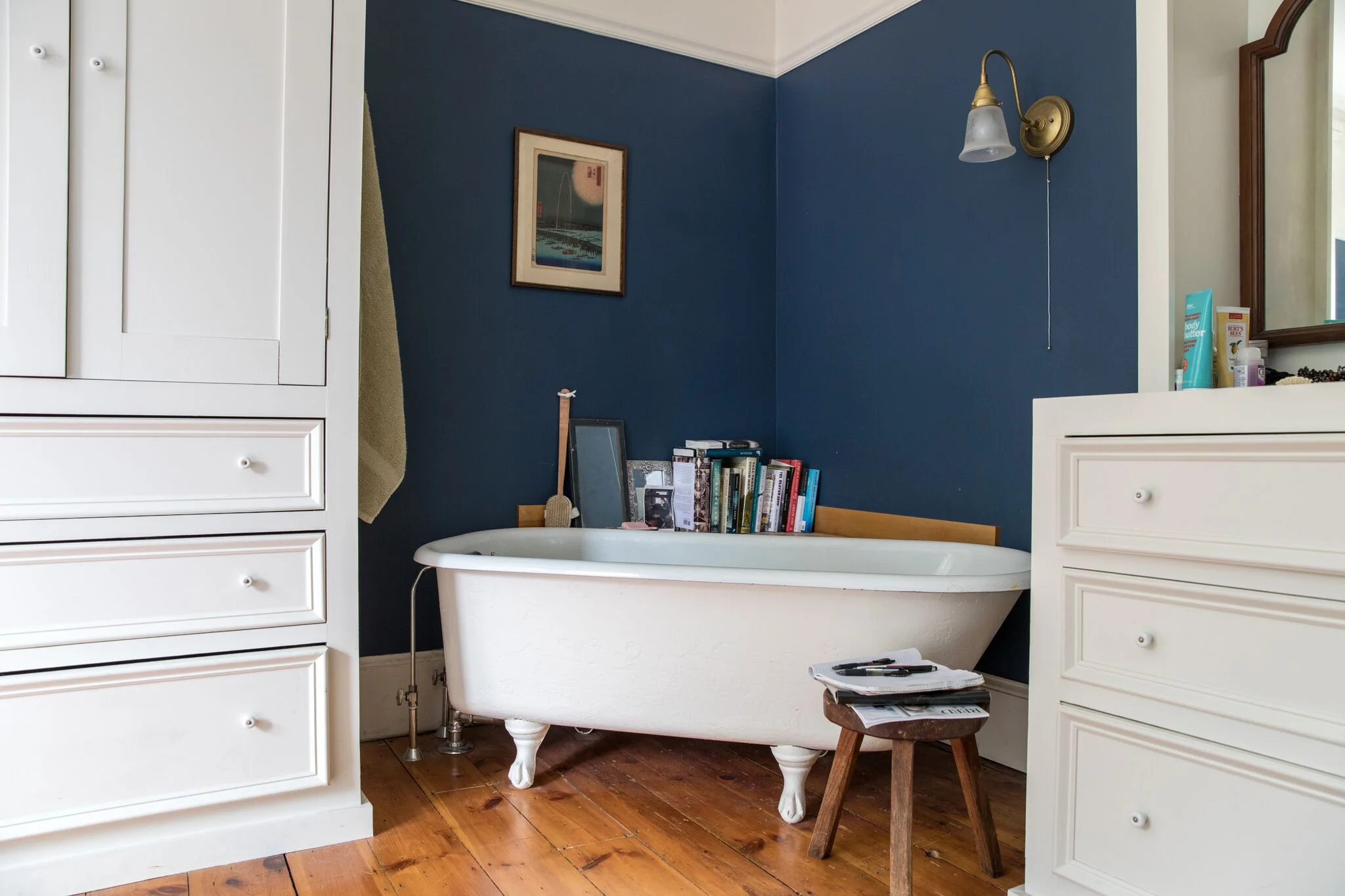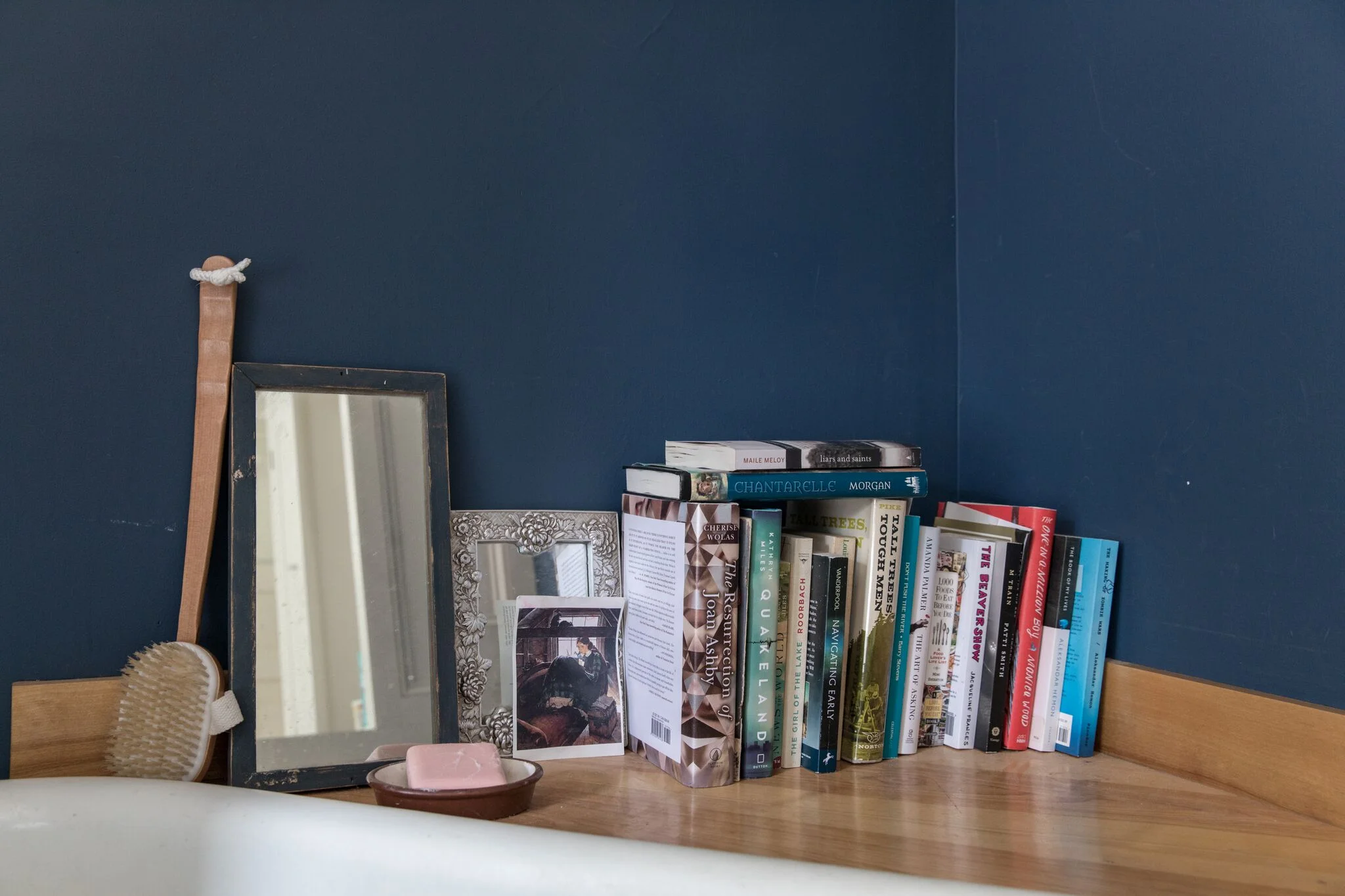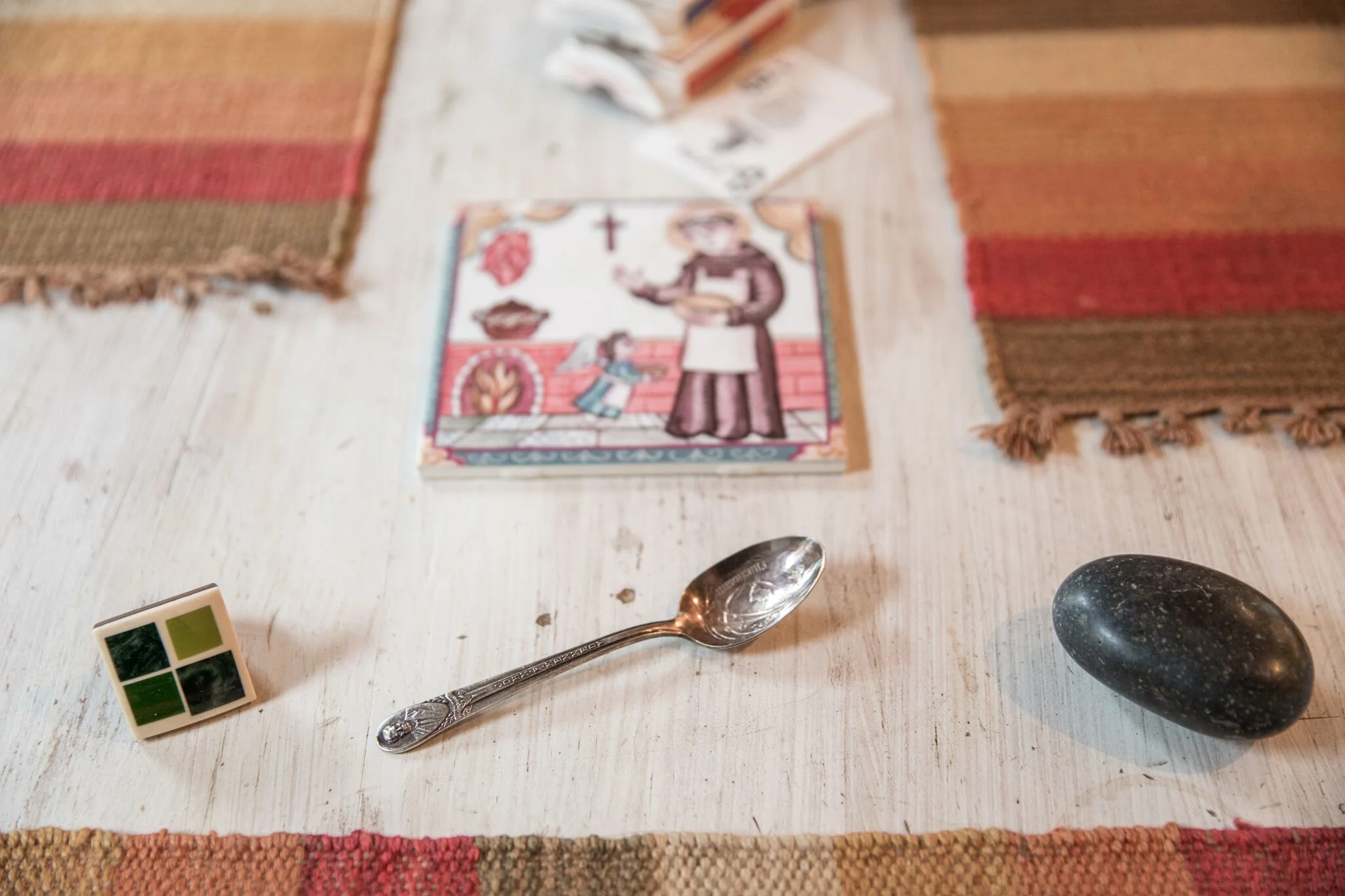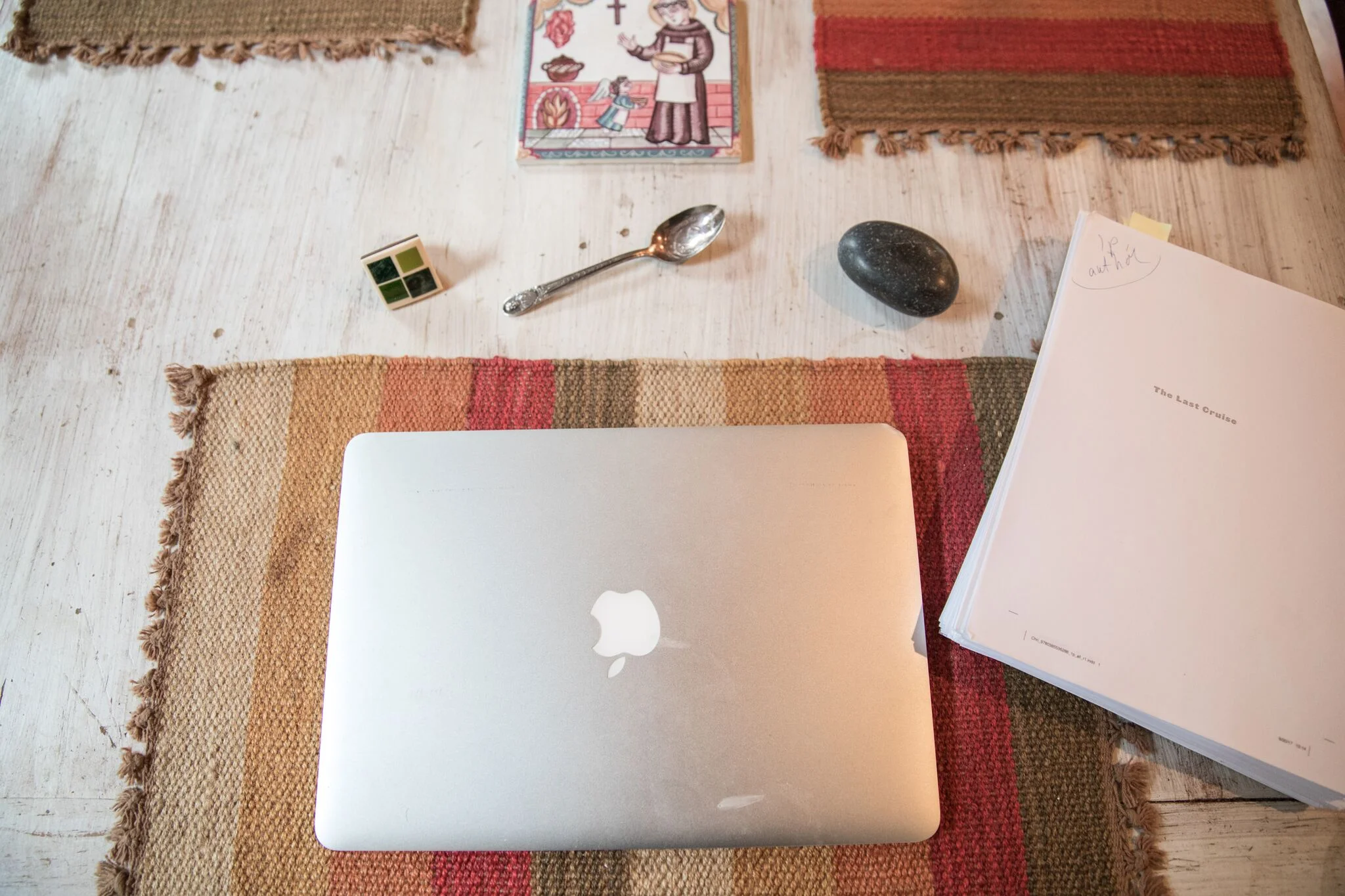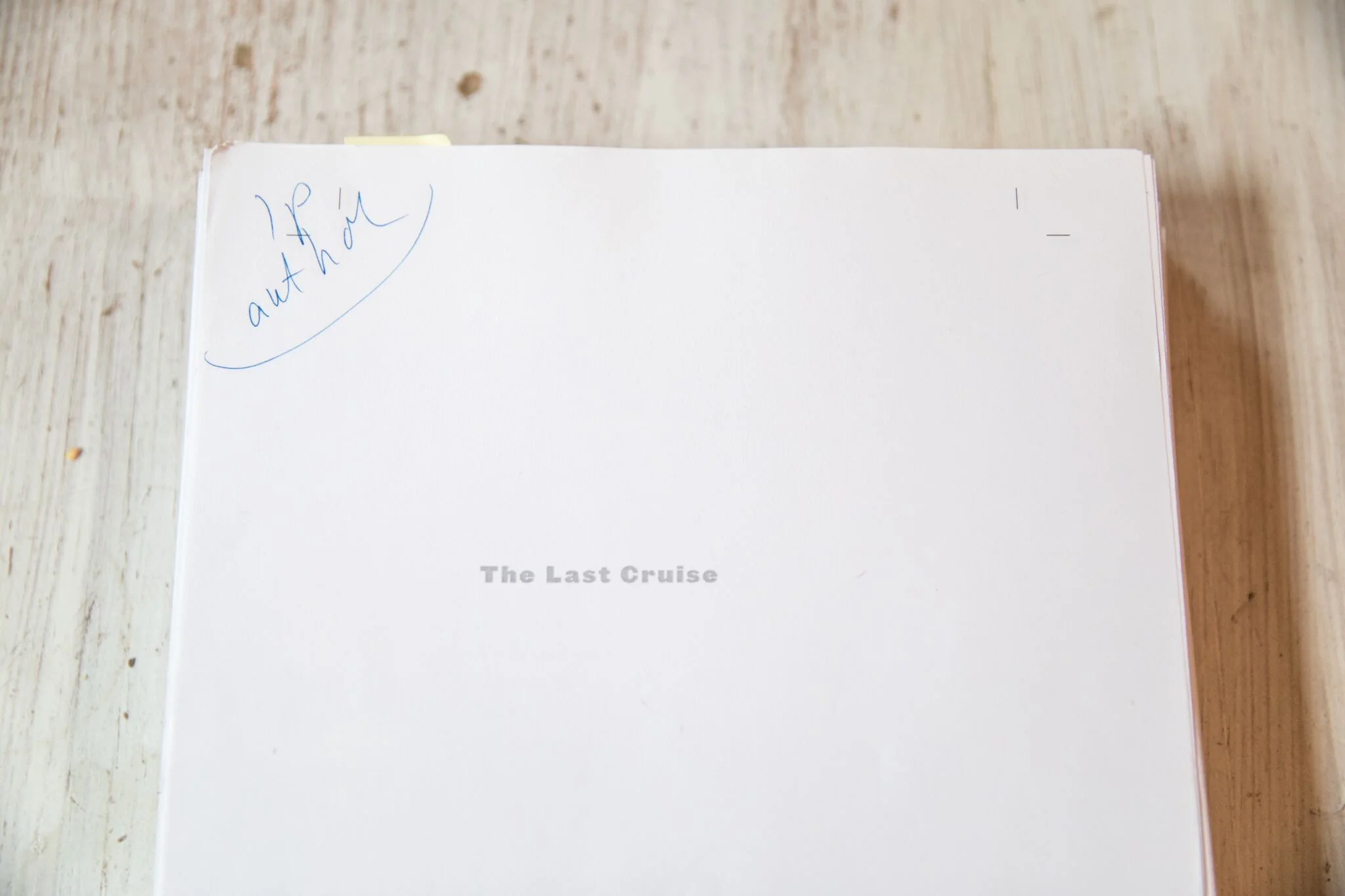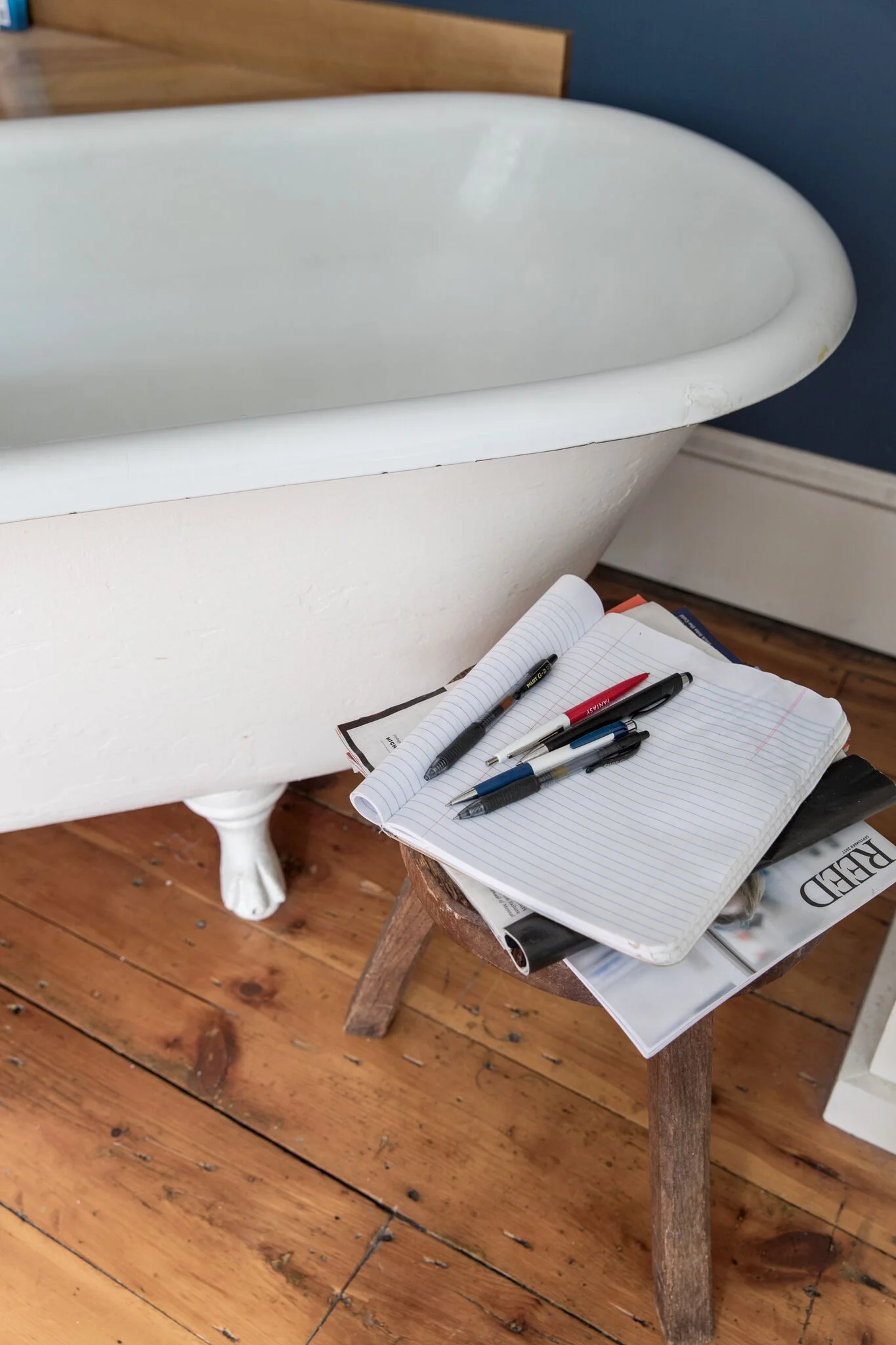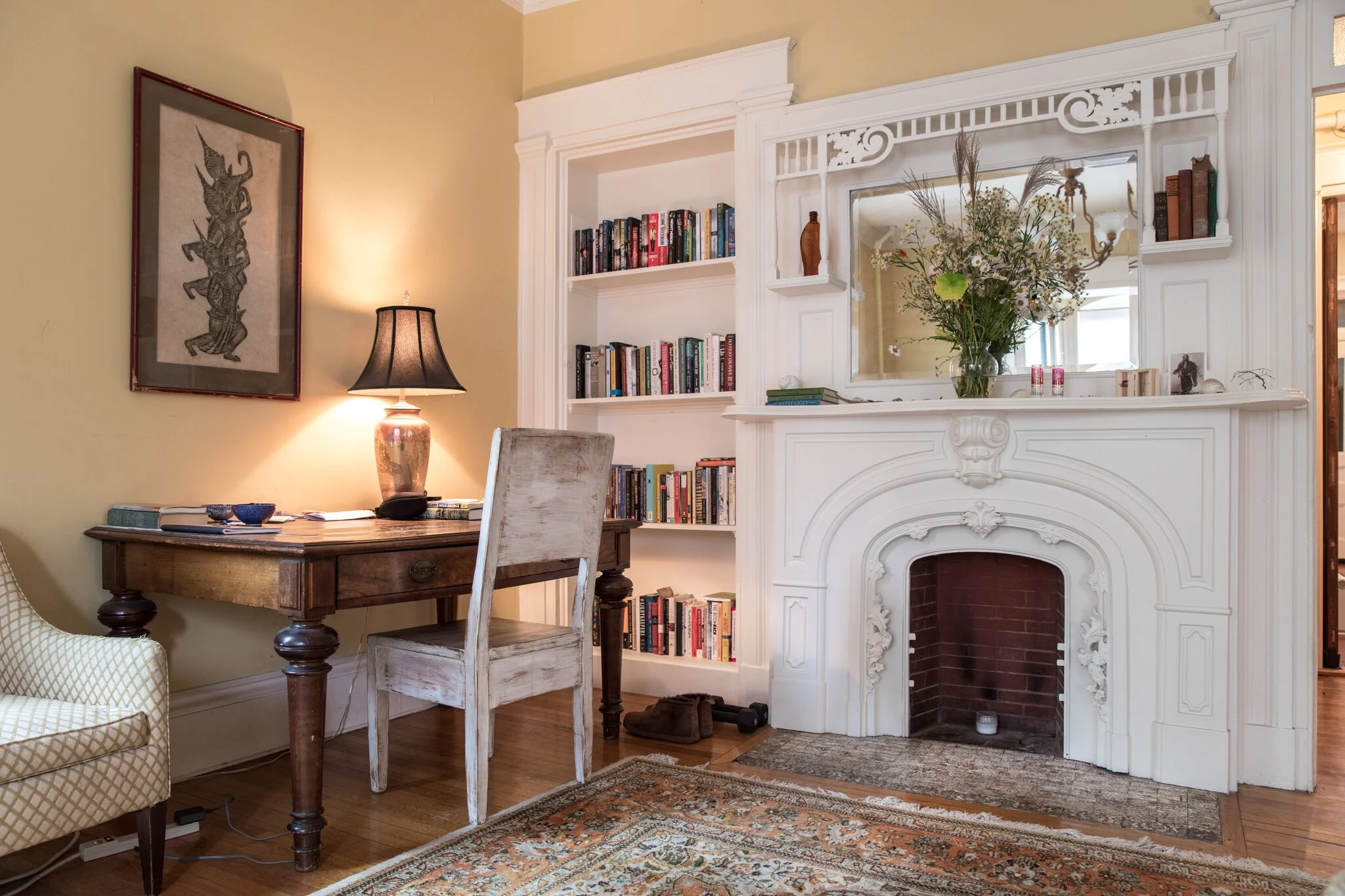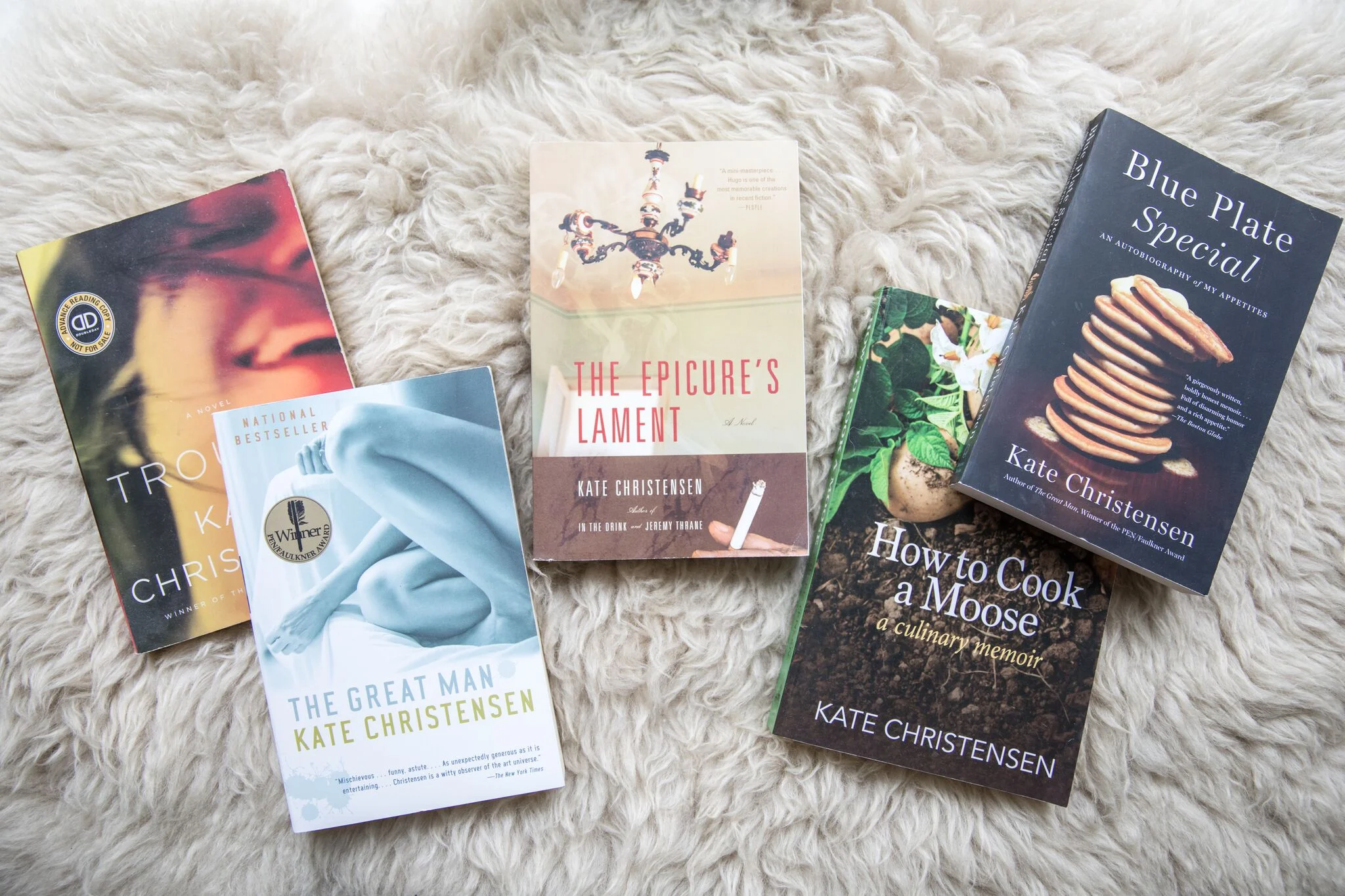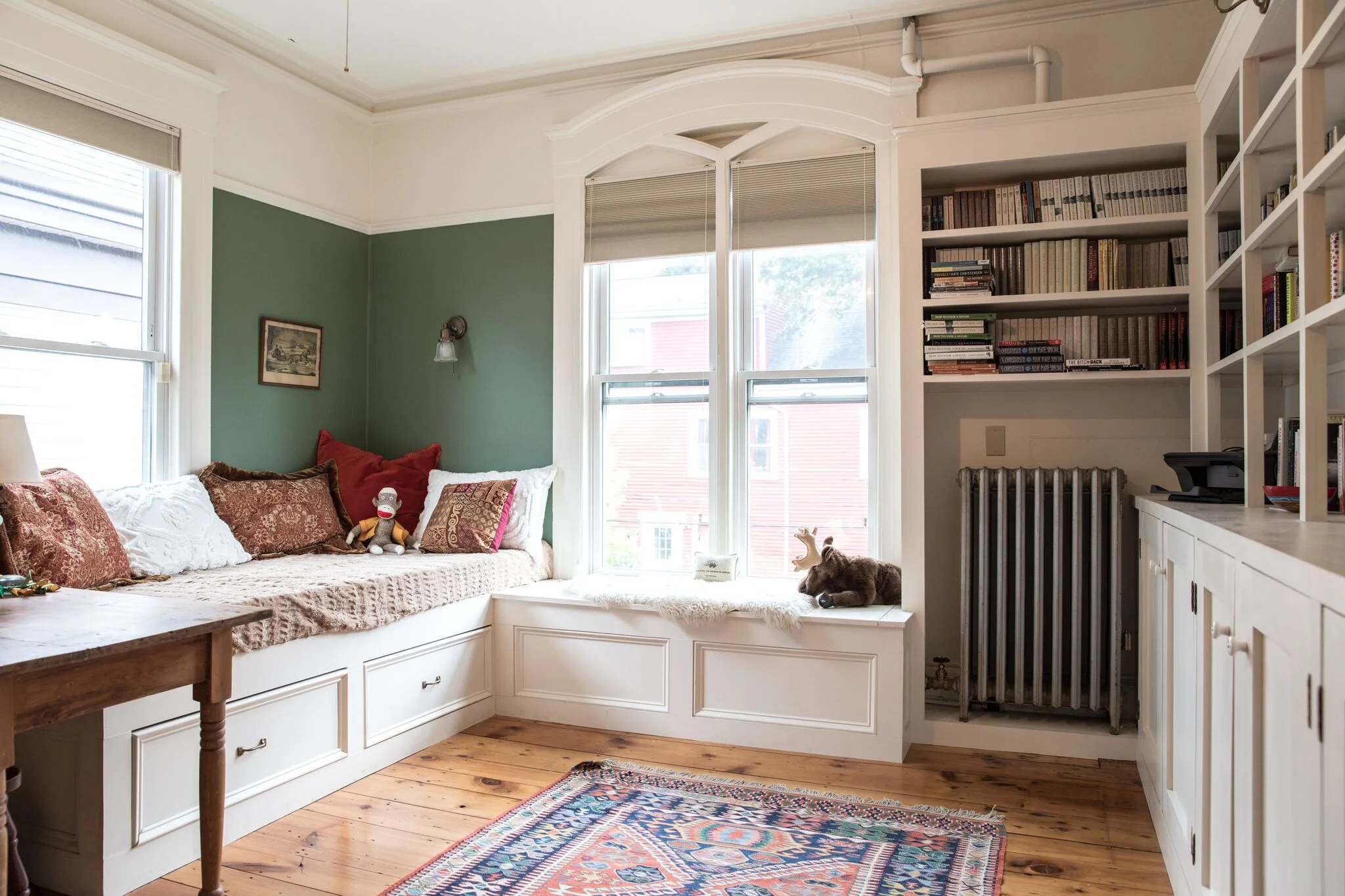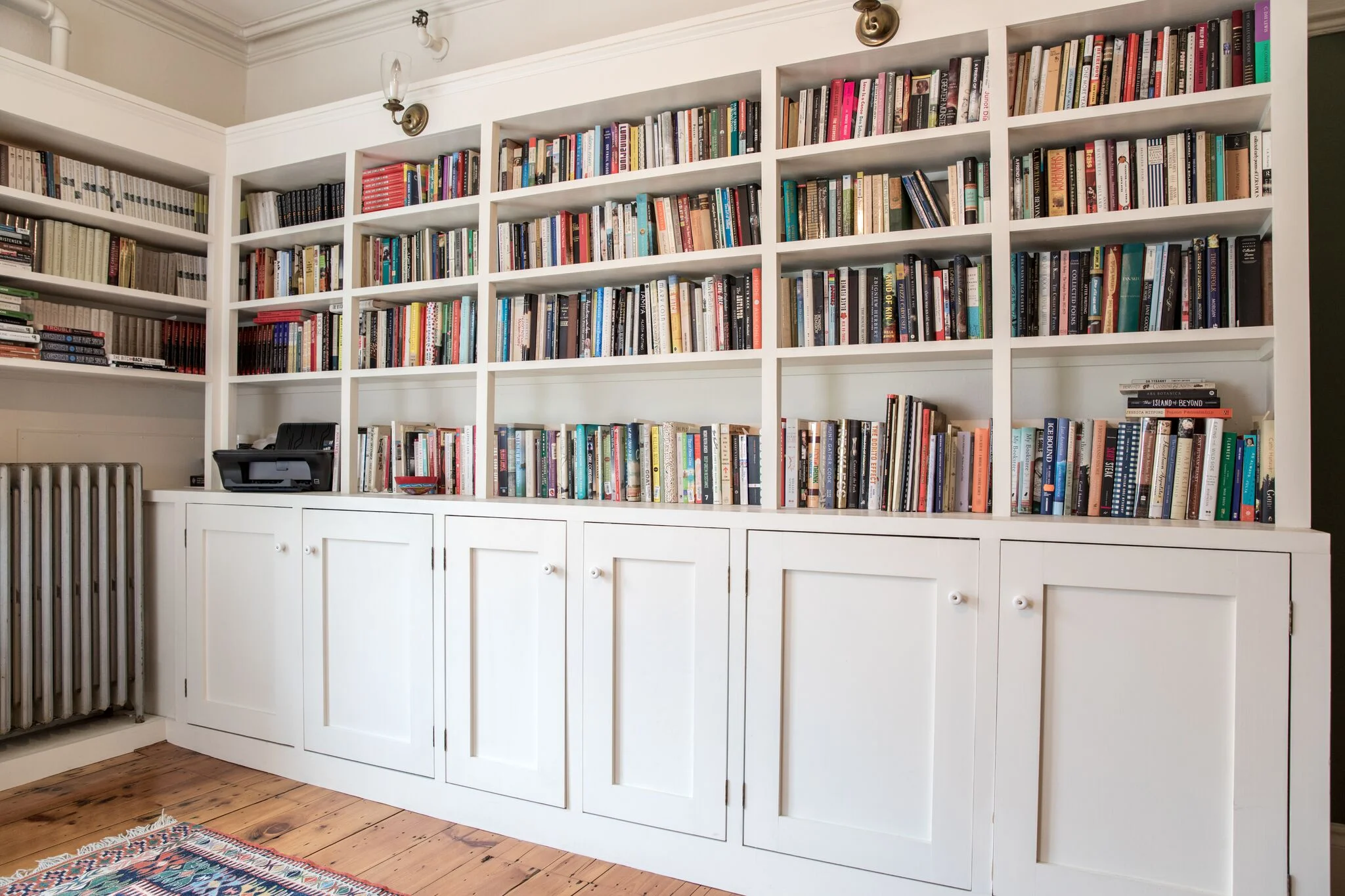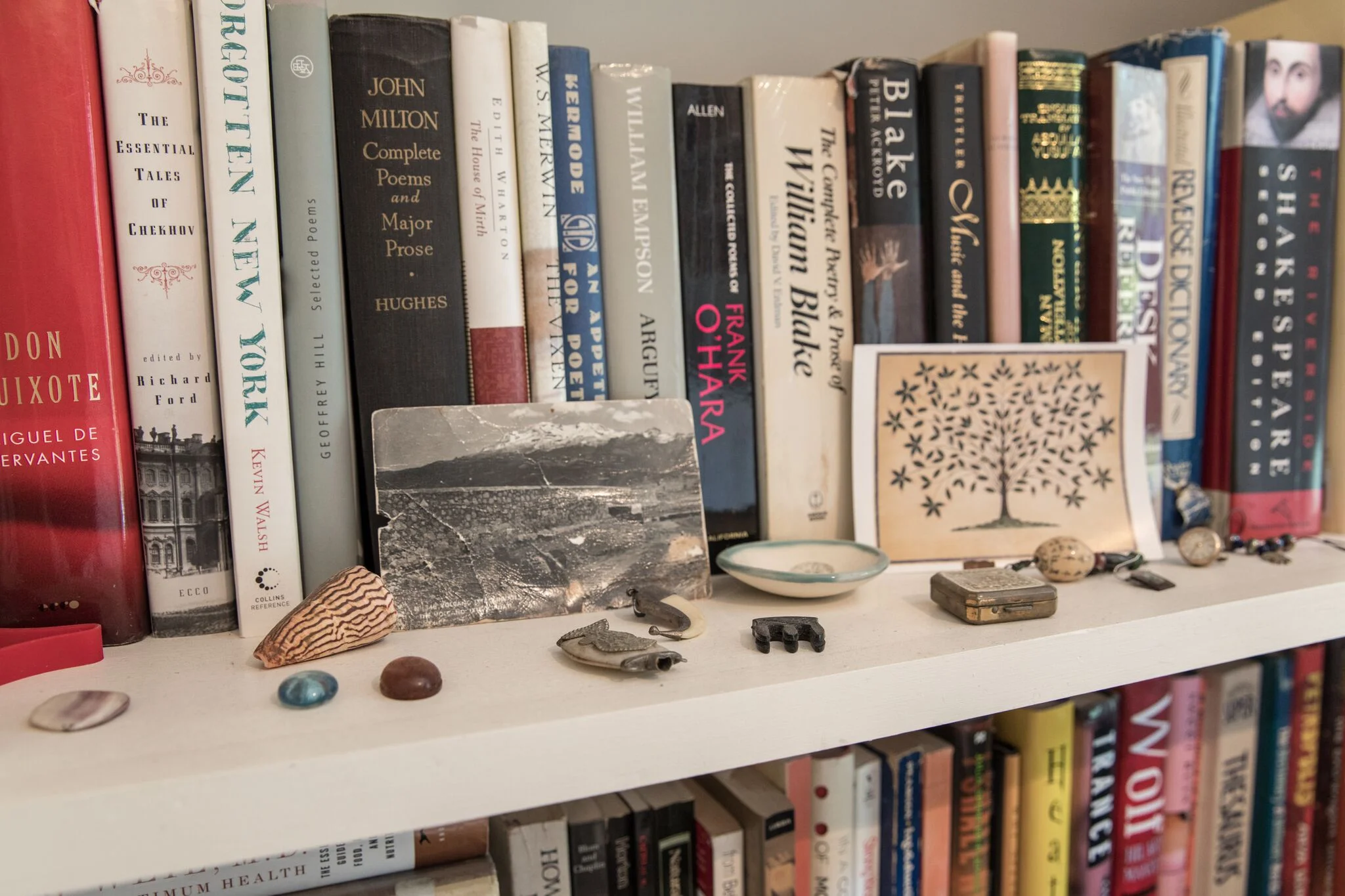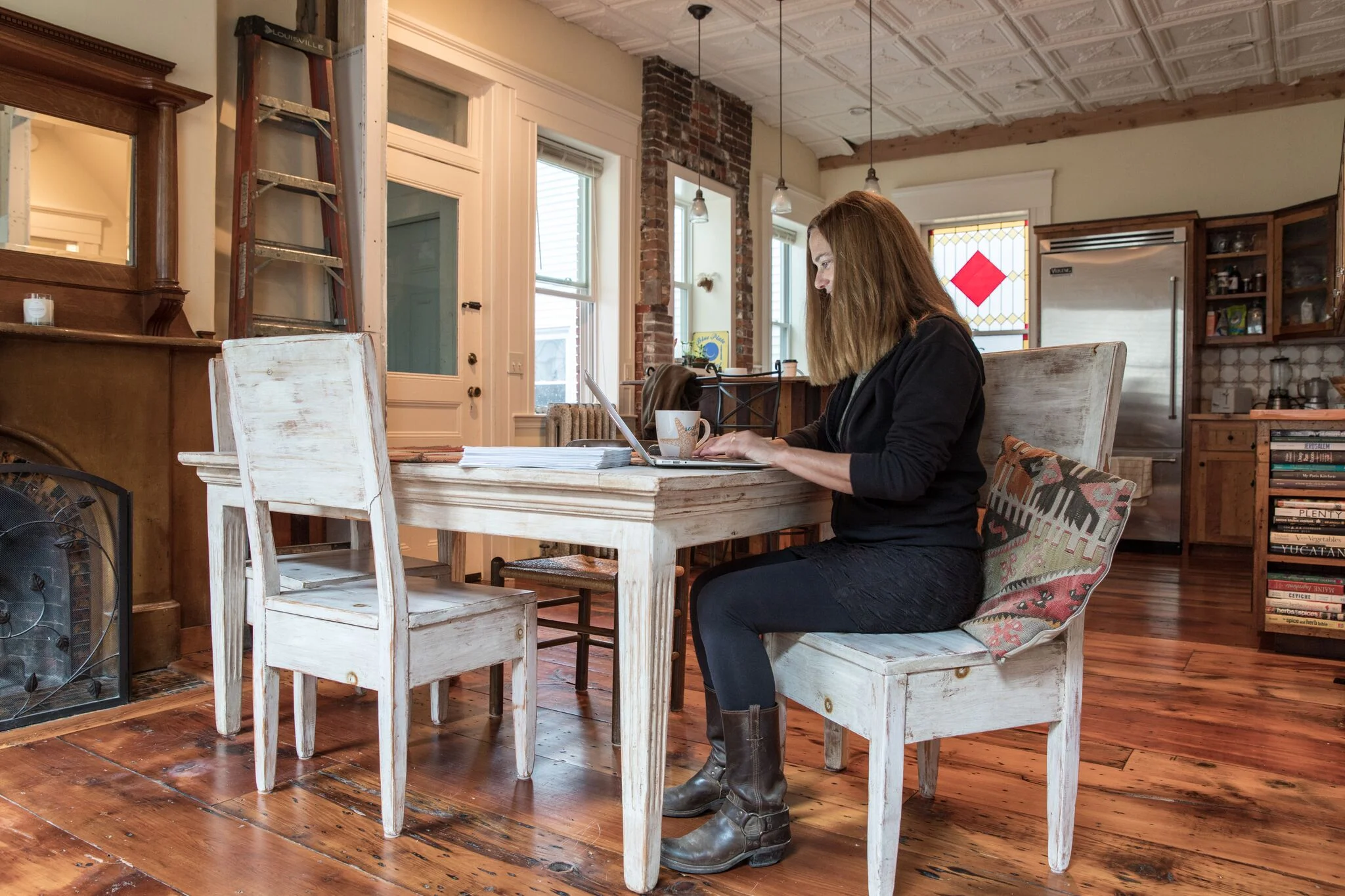When you read a book by Kate Christensen, you will be well-fed. Her writing tumbles with braises, ripe fruit, crumbling cheese, and lettuces slick with oil. Walking into her home is no different—Kate is someone who feeds you.
Kate has written seven novels and two memoirs. The Great Man, her fourth novel, won the Pen Faulkner award in 2008. We talked to Kate about hard work, the joy of chopping an onion, and everything in between. Pull up a chair and tuck in.
"We bought our house without knowing a soul in Portland.
Just on a buoyant feeling of faith. That this is the right place. And the more we live here, the more we feel it."
Quick edit
Profession:
Writer
Cooked last night:
Homemade pasta
Years in Maine:
6
Best places to write in Portland:
Arabica
Crema
Yordprom
Favorite room in the house:
Bathtub (we think that counts)
THE MAINERS: Just to set the scene, we’re in your kitchen and you’re chopping apples to make applesauce. Can you tell us a little bit about the kitchen? It’s beautiful.
KATE CHRISTENSEN: Our kitchen is steeped in the history of Maine. The wood of the cabinets and wainscoting comes from an old mill in Biddeford. The floor and countertops, which we bought in Cape Elizabeth, are made from weathered boards taken from the exterior of an 18th century barn. The bar top copper originally lined a 1905 wooden bathtub we bought in Waterville.
The stove and fridge, both Vikings, came from a barn in Poland Springs; they were sold cheap, second-hand, pulled out of upscale summer houses when their owners remodeled and upgraded. The stained-glass window was fabricated at a glass place on Forest Avenue called Phoenix Studio. The ceiling tiles are from the 1880s—Brendan [Kate’s husband] found them on Craigslist. The backsplash tiles came from farthest away: Mexico. But we bought them at Old Port Tile on Middle Street.
THE MAINERS: It feels like a well-loved, friendly space.
KATE: This is command central. I designed the kitchen to be the most easy, fun place to cook. The spices are all out in the open. It just feels like I can play. And I work right there [large table open to kitchen] so I’m back and forth all day.
THE MAINERS: How are cooking and writing linked for you?
KATE: There’s a real connection between cooking and writing. Not just for me. I think for a lot of writers, and maybe artists in general, cooking gives you a sense of getting out of your work and back into the world. I sit at my keyboard all day, sort of hunched over. Cooking is a sensual return to life.
THE MAINERS: What does that look like each day?
KATE: Chopping an onion signals that my work day is over. It feels celebratory to start cooking each evening.
THE MAINERS: Could I ask what you made for dinner last night?
KATE: Last night I ate a huge plate of pasta. My mother gave us a pasta machine. It was a wedding present. We got married last year, but we eloped so we only got three wedding presents [laughs]. This machine changed our life.
THE MAINERS: And the sauce?
KATE: Usually Brendan makes the pasta sauce—both his parents grew up in Italy and he’s a fantastic cook. But last night was one of my inventions, from our fall CSA share from Cultivating Community—a light tomato sauce with chopped kale and delicata squash, and sujuk sausages from Rosemont.
THE MAINERS: Besides your own kitchen, where do you like to eat in Maine?
KATE: My current favorite place to eat is the dining room of my friend Mary Pols, who is one of the best cooks I know. Her table seems to effortlessly gather interesting people and conversations. And her Brunswick farmhouse is full of beautiful objects and colors and textures.
THE MAINERS: Your home has such a calm vibe. Do you have a favorite room?
KATE: My bathtub nook. Is that a room? My bedroom, then.
THE MAINERS: I love that you have a bathtub in your bedroom.
KATE: I found the bathtub in the basement when we bought the house. There was no space in the bathroom, and there was a corner that was just sitting there in the bedroom. I was like, wait! I know what to do!
THE MAINERS: As we walked around the house earlier, you pointed out many small, beautiful objects—your writing charms. Do you have a favorite?
KATE: This changes all the time. Right now, it’s the rock my friend Genevieve Morgan gave me. She was my editor for “How to Cook a Moose” and is now one of my closest friends. It was her birthday present to me last August: a smooth dark gray water-polished rock that feels good in my palms when I need to stop typing and touch something tangible.
"I used to dress for the streets of New York.
Now I dress according to what feels good. That’s not to say that I no longer care about style, but if a piece of clothing isn’t pleasurable to wear, I find that I just don’t wear it, no matter how objectively cool or flattering it may be."
THE MAINERS: You are so well-knit into the community here. Does Maine feel like home?
KATE: Yes, from the beginning. I came here and I thought, ok, this is home. I had never found that anywhere before. I spent most of my childhood in Arizona. I was a New Yorker for twenty years. I went to college in Oregon and graduate school in Iowa. I lived in France for a year. Never did I have a feeling of belonging in any of those places.
But it was so instant with Maine. We bought our house without knowing a soul in Portland. Just on a buoyant feeling of faith. That this is the right place. And the more we live here, the more we feel it.
THE MAINERS: Now that you’ve been here for a while, does anything specific contribute to that feeling?
KATE: The people. It’s the people in Maine. People here work really hard. There’s a sense of relief in that – that working really hard is a thing in itself.
It’s not about how famous you are or how much money you make or who you know. It’s this ethic of getting shit done, of doing your stuff. And that’s how I want to live, and how I do live. It’s nice to have a place that reflects my identity in that way.
THE MAINERS: Has your personal style changed in Maine?
KATE: I dress for comfort now. I used to dress for the streets of New York. Now I dress according to what feels good. That’s not to say that I no longer care about style, but if a piece of clothing isn’t pleasurable to wear, I find that I just don’t wear it, no matter how objectively cool or flattering it may be.
THE MAINERS: Do you have any projects in the works right now?
KATE: I just finished a novel, The Last Cruise. But I feel like I could go through it and change words forever, you know? But I’ve got to let it go. The page proofs are due tomorrow, so I have to FedEx them today.
THE MAINERS: What was the experience of writing that book?
KATE: This novel was really, really hard to write. While I was writing, I looked back at The Great Man, and I thought about how hard that book was to write. I made myself remember how I got through the difficulty by sheer discipline. I had to remember, oh yeah, not all books tumble out. Not all books are fun to write. The Great Man was not fun to write. I felt like I was pulling it out of myself through pure will.
THE MAINERS: That’s so interesting. I love The Great Man and I feel like the book has a light energy.
KATE: The Great Man does feel light. But I was in a state of utter heartbreak and trauma when I was writing it. And these old women and their voices and their experiences and their way of looking at the world and their wisdom and the fact that they still wanted things at that age – all of those things buoyed me. I felt the book got me through that time.
Often when I’m writing a book, it saves me. Memoirs are different, but when I’m writing a novel, there’s usually something I need – to give myself, or to explore, or to do as a writer. It doesn’t need to be personal, it can be artistic.
THE MAINERS: A parallel world to escape to, perhaps.
KATE: A parallel world, but also me, giving myself this bubble to climb up into that’s attached to my head. That’s always how I look at a book that I’m working on. Sort of this filmy bubble that I climb up into and spend the day in and then climb back down. And chop an onion. [laughs] You know?
THE MAINERS: And what happens when you finish a project?
KATE: When the book is done, I cut the umbilicus that ties it to my head, and it just floats off. And these [previously published books] have all just floated off and aren’t part of me anymore. They’re part of the world. Even though it’s not perfect, and even though you could continue to work on it, it’s time for it to go. Suddenly I’m not writing a book. I’ve now written a book. Off it goes, no more I can do. It feels almost like a physical detachment.
THE MAINERS: A novelist once told me that every writer he knows marks up copies of their own books.
KATE: Oh god, I do that. I’m glad I’m not the only one. When I have to give a reading, I go through a section and end up cutting. I think, god, I’m so verbose! Why didn’t I cut that originally? Why is this so long!
"I feel like I matter as a writer here [in Maine],
even though I’m a woman, despite being a woman. I matter just as much as the male writers I know. And they feel the same way. I feel respect from them."
THE MAINERS: How does living in Maine affect you as a writer?
KATE: I feel like I matter as a writer here, even though I’m a woman, despite being a woman. I matter just as much as the male writers I know. And they feel the same way. I feel respect from them. Which—oh my god. You know? I think it’s part of why I’m so happy here. I don’t have to constantly prove myself.
Somehow in the fabric of life in Maine there is a kind of egalitarianism where women work just as hard as men, and are expected to, as a matter of course. It’s not glamorous here, although people can be glamorous in Maine. But the primary role of women here is not decorative. I profoundly feel that, even in Portland, even in 2017.
THE MAINERS: What about Maine inspires you? Is it what you just described, or something else?
KATE: I think it is something different. I’m not exactly sure how to articulate it….
I have a sense of the essentials being the thing here. We’re close to the bone of reality. Maine is a pared down life. It’s elemental here.
There is real darkness, writ large. There is true poverty. In the streets of Portland there is more and more financial inequality. But I feel connected to it, not distanced from it. We’re all implicated in it. We’re here together. I think that has to make me a better person and artist. To be knit into a fabric of reality.
Kate’s Applesauce
Use the most flavorful apples you can find. Various kinds work best for a complexity of flavor--I used assorted heritage apples from the old orchard at Brendan’s family farmhouse, which is about an hour from here.
Core (leave the peels on) and finely chop 6-8 apples, as small as you can, a fine dice. Put them into a sturdy saucepan. Add about half a cup of water, plus a glug of maple syrup and a teaspoon of cinnamon. Stir well. Bring to a boil then down to a simmer. Cover. Let it cook, stirring occasionally, for about 20 minutes, adding more water if necessary, until the apples are soft. Mash the applesauce with a fork or slotted spoon. Let cool slightly. Eat.
